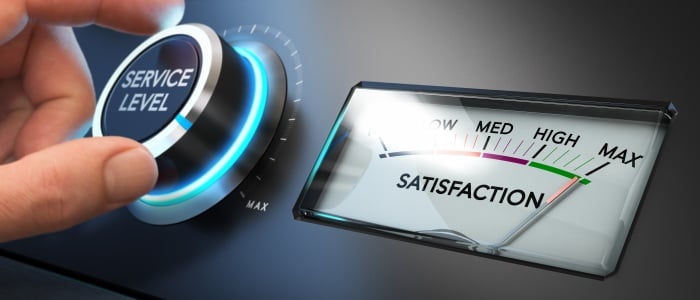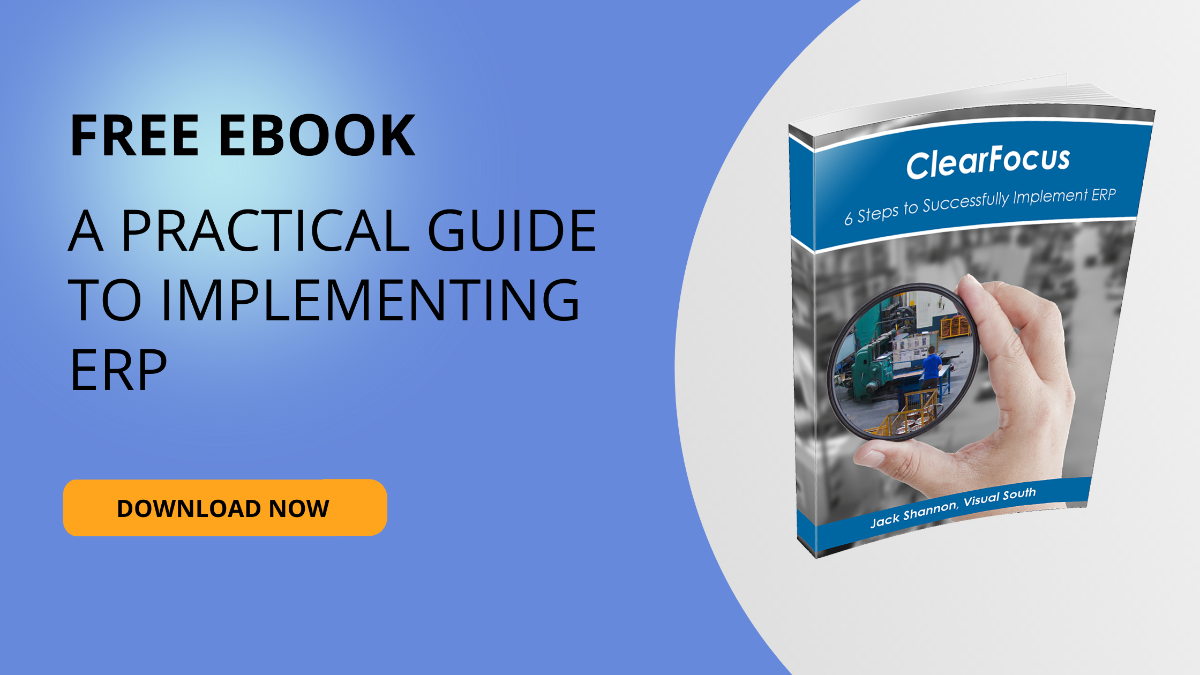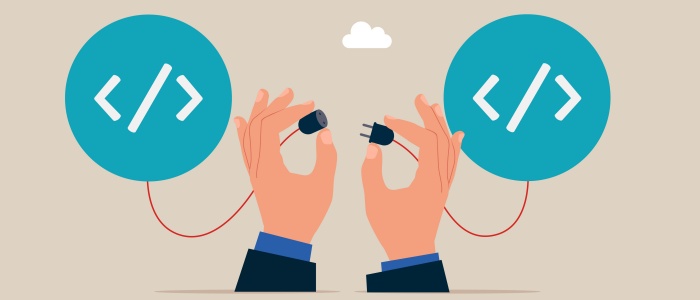There is a process
Implementations are not something a business does all the time, so most tend to look for a consulting group like Visual South to guide them. We have been implementing companies across the country since the early 90s to help them address multiple business needs. Over the decades, we have developed an implementation process that is methodical, thorough, and has consistently proven to be successful. Here are some of the ERP implementation services we offer and why we think they play a big role in the overarching plan.
Related: ERP Implementation Services: What Should Be Provided?
Related: How to Implement an ERP System Step-by-Step
Wait, before I get too far
Before we even start the implementation process, we have a discovery phase where we learn the business needs, or challenges you’re trying to solve with your ERP. The discovery process is similar to a football team having film study and practice throughout the week leading up to the big game. It gives us a chance to understand the most important areas of the organization you are trying to improve and change with the implementation.
Once the discovery phase is complete, we move on to the actual implementation process.
Download the 6-step guide to successfully implement ERP
ERP implementation consulting services
- Project Planning: After we understand and agree upon the most important business areas to focus on, we start building our plan together. I like to call this our grocery shopping stage. I know you’re asking yourself right now what he is talking about; let me explain. We have created a list of all the areas of the ERP software that can be implemented, but it’s not practical to implement every single item on the list at once. We walk through the list together to understand what is essential for go-live, and what is desirable for the future. We complete this so that we are all on the same page, and there are clear expectations of the ERP solution at go-live. This why I call it “grocery shopping”. All the ingredients needed to make dinner are put in our cart.
- Data Conversion: Now that there’s a plan, it’s time to start cooking. The first thing we start with is your data. We work closely with your team to scrub and clean your data to make sure it is properly formatted to be moved into your ERP. There are different kinds of data records that can be loaded into the ERP. Focus is typically on standard fields: customers, vendors, parts (both finished and raw materials), bill to/ship to addresses, contracts, vendor pricing, customer pricing, and bill of materials. The cleaner the data, the more you are going to trust the ERP solution when it’s time to make decisions. Data Conversion is often overlooked, but a significant part of our ERP implementation.
- Process Development & Training: One advantage of our ERP cloud solution is it comes with implementation accelerators. This gives you prebuilt workflows, as well as, a template that can be customized if you need to adjust the workflow to your business needs. We use these workflows to build out the processes and procedures that you may or may not have in place. We help you document these procedures so as you bring in new employees you don’t have to rely on someone else’s inherent knowledge.
At this stage we also start scheduling internal trainings. We provide you with template that helps you plan when different departments should start their training and includes milestones checkpoints.
- Pilot Testing: I believe this is the most important stage in our ERP implementation process. This is where we test the system to make sure the process flow is how you envisioned it workings in real time. The more your team can test the more we can refine the flow and the more you will be ready at go-live.
We work with your team to build a test schedule that leads up to our scheduled pilot test. We typically do at least two pilot tests. This helps us see if we improve over each pilot and also reveals if you need more training in departments. Another pilot test can be scheduled if necessary.
- Go-Live/Post Go-Live: Once you have signed off on all the pilot tests we schedule a go-live date. At this point we start to load dynamic data. This is generally transactional data such as open WIP, inventory, customer orders, purchase orders, accounts receivable, accounts payable, trial balances, etc. Loading this data normally takes two to five days prior to go-live. We recommend choosing a day that is an accounting period start day, and bring in opening and closing balances in your current system.
After go-live, support is continued for the first month to help with first month close. We also plan additional ERP implementation services that might be needed after go-live to help meet your business needs.
Related: What is ERP Consulting
ERP implementations are what we do
That is a quick rundown of how we operate and what we recommend based on over 20 years of experience. If you have questions about either our cloud ERP or on-premises service implementations, you can learn more here. Your questions can also be addressed in-person. Jack Shannon, from Visual South, is available for a free phone consultation.









